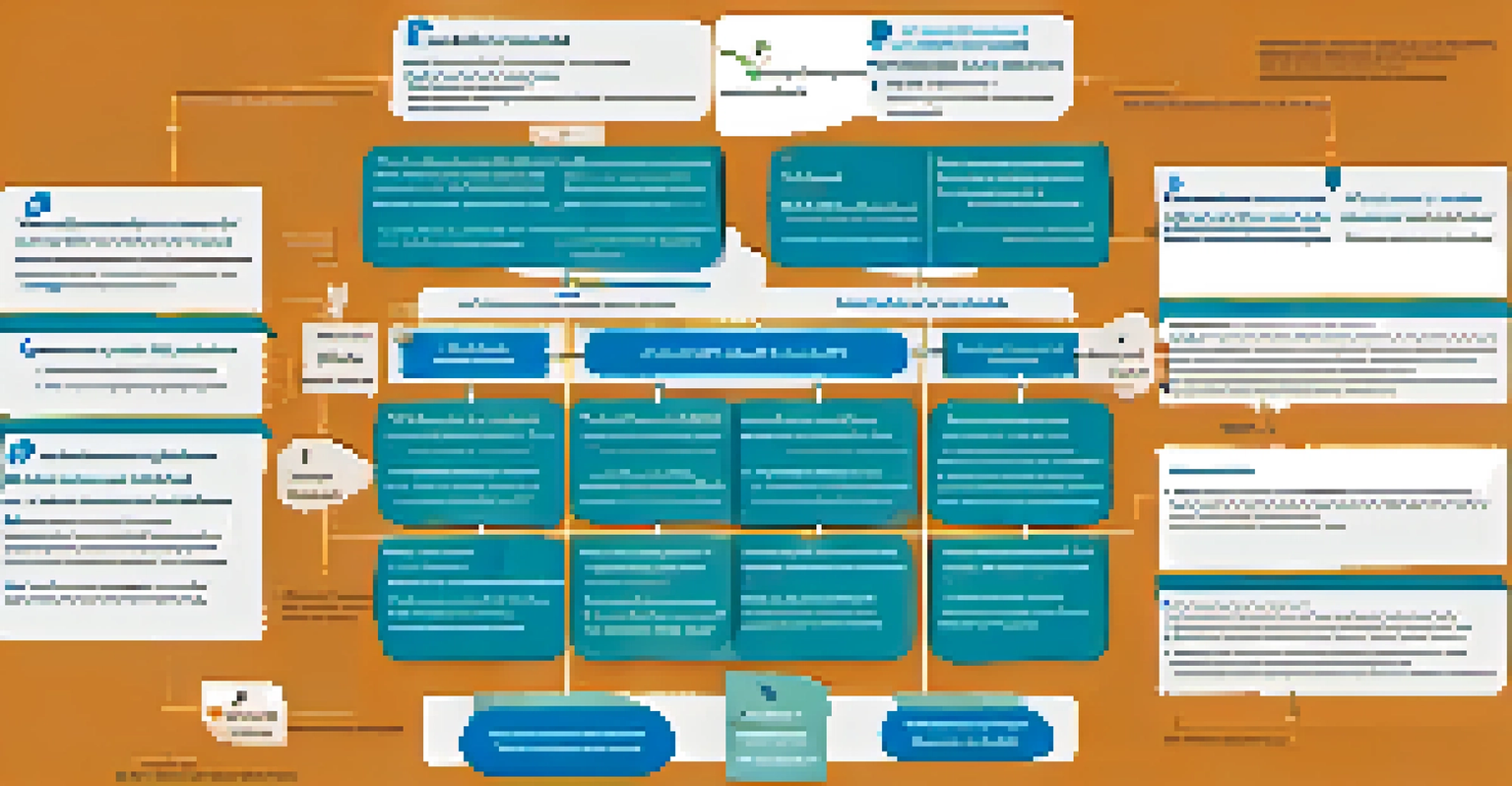Understanding the Accreditation Process for Phoenix Schools

What is Accreditation and Why is it Important?
Accreditation is a process through which schools are evaluated for quality and effectiveness. It serves as a stamp of approval, ensuring that educational institutions meet certain standards. For parents and students, attending an accredited school means they can trust the quality of education they will receive.
Education is the most powerful weapon which you can use to change the world.
In Phoenix, accreditation is particularly vital as it impacts a school's reputation and funding. Schools that receive accreditation are more likely to attract qualified teachers and dedicated students. This can lead to a stronger community and better educational outcomes overall.
Moreover, accreditation can facilitate college admissions for high school graduates. Most colleges and universities prefer students from accredited schools, making this process crucial for future opportunities. Understanding this aspect helps parents make informed decisions about their child's educational path.
The Different Types of Accreditation
There are primarily two types of accreditation: regional and national. Regional accreditation is considered the gold standard, often covering public and non-profit private institutions. On the other hand, national accreditation typically applies to for-profit schools and specific programs, which may not always hold the same weight.

In Phoenix, many schools aim for regional accreditation due to its recognized credibility. This process often involves rigorous evaluations, including site visits and self-study reports. Schools must demonstrate that they meet or exceed the standards set by the accrediting body.
Importance of Accreditation
Accreditation ensures that schools meet quality standards, which can significantly impact students' educational outcomes and future opportunities.
Additionally, specialized accreditation exists for specific programs, such as nursing or engineering. This ensures that these programs meet industry standards, which is essential for students seeking careers in those fields. Understanding these types helps families choose the best educational options for their needs.
The Accreditation Process: Step by Step
The accreditation process typically begins with a self-study phase, where the school evaluates its own strengths and areas for improvement. This honest assessment helps schools identify what they need to work on before the external evaluation begins. It’s like preparing for a big exam; you want to know where you stand.
An investment in knowledge pays the best interest.
Next, an accrediting agency conducts a thorough review, which may include site visits and interviews with staff and students. This evaluation is crucial as it provides an outside perspective on the school’s performance. The agency will assess everything from curriculum quality to student support services.
Finally, the school receives feedback and a decision from the accrediting body. If successful, the school is granted accreditation for a certain period, usually five to ten years. This process emphasizes continuous improvement, as schools must regularly demonstrate their commitment to maintaining high standards.
Common Myths About Accreditation
One common myth is that accreditation is a one-time achievement. In reality, schools must continually work to uphold their accreditation status, undergoing reviews and updates regularly. This ensures that they are always striving for excellence, rather than resting on their laurels.
Another misconception is that all accredited schools are equally effective. While accreditation indicates a baseline level of quality, it doesn’t guarantee that every program or teacher is exceptional. Parents should still research individual schools to find the best fit for their child.
Types of Accreditation
Understanding the differences between regional, national, and specialized accreditation helps families choose the best educational options for their needs.
Lastly, some believe that only traditional public schools can be accredited. However, many charter and private schools in Phoenix also pursue accreditation. This diversity allows families to explore a wide range of educational options, ensuring they find the right environment for their child.
Key Accrediting Bodies for Phoenix Schools
In Phoenix, several key accrediting bodies oversee the accreditation process. The North Central Association Commission on Accreditation and School Improvement (NCA CASI) is one of the most recognized regional bodies. Schools affiliated with NCA CASI benefit from a well-established reputation for quality.
Another important accrediting body is the Council on Accreditation (COA), which focuses on specific programs and services. Schools may seek COA accreditation to demonstrate their commitment to best practices, particularly in areas like social services and mental health programs.
Understanding which accrediting bodies are recognized can help parents make informed choices. By selecting schools accredited by reputable organizations, families can feel more confident in the educational quality their children will receive.
The Benefits of Choosing an Accredited School
Choosing an accredited school in Phoenix comes with numerous advantages. First and foremost, it assures parents that the institution meets high standards of education. This can lead to better student performance and a more enriching learning environment.
Additionally, accredited schools often have access to more resources and funding opportunities. This can translate into better facilities, updated technology, and enhanced extracurricular programs. Students can benefit from a well-rounded educational experience that prepares them for future success.
Role of Parents in Accreditation
Parents can support the accreditation process by actively participating in school initiatives and providing valuable feedback to help improve educational quality.
Finally, attending an accredited school can ease the transition to higher education. With a recognized diploma, students are more likely to gain admission to colleges and universities. This opens doors for scholarships and financial aid opportunities, making college more accessible.
How Parents Can Support the Accreditation Process
Parents play a crucial role in supporting their school's accreditation efforts. One way to contribute is by participating in school improvement initiatives, such as attending meetings or volunteering for committees. Involvement demonstrates a commitment to education and helps shape the school's development.
Additionally, providing feedback through surveys or discussions can be invaluable. Schools often seek input from families to identify areas that need attention. This collaboration fosters a sense of community and ensures that the school aligns with the needs of its students and families.

Lastly, staying informed about the accreditation process can empower parents to advocate for their children's education. By understanding what accreditation entails, parents can ask the right questions and push for improvements that benefit all students.